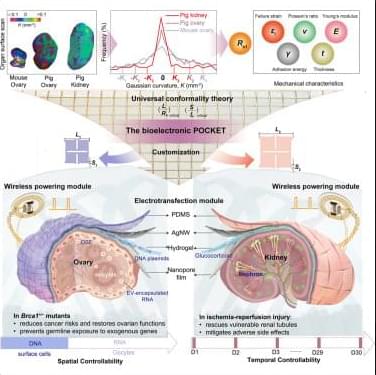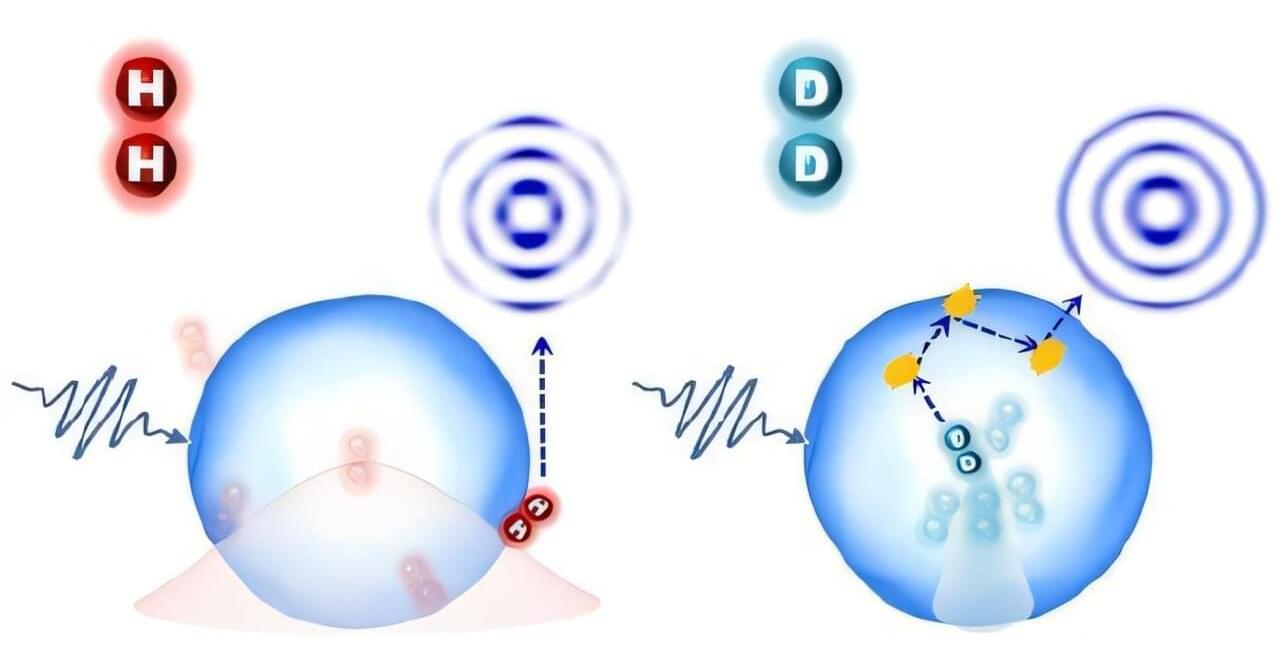Artificial intelligence (AI) can be trained to see details in images that escape the human eye.



To obtain direct evidence supporting the theory that the postsynaptic density (PSD) in neuronal synapses is formed via phase separation, Chen et al. purified and characterized the native PSD from the mouse brain. Their results demonstrate that the native PSD has characteristic features of biological condensates formed via phase separation.

Here, Sarah Gaffen & team report on the noncanonical RNA binding protein Arid5a as an activator of TNF signaling that is elevated in human RA tissues. And in mice… its loss results in resistance to collagen-induced arthritis:
The figure shows TNF stimulation causes Arid5a accumulation in the cytoplasm in a murine stromal fibroblast cell line untreated (left) and treated (right); Arid5a (red); RPL7A (green); nuclei (blue).
1Division of Rheumatology & Clinical Immunology, Department of Medicine, University of Pittsburgh, Pittsburgh, Pennsylvania, USA.
2BIOCEV, First Faculty of Medicine, Charles University, Vestec, Czech Republic.
3School of Medicine, Tsinghua Medicine, Tsinghua University, Beijing, China.

Procrastination, the tendency to unnecessarily delay or put off tasks even if this will have negative consequences, is a common behavior for many people. While occasionally delaying or putting off bothersome tasks is not necessarily problematic, severe and prolonged procrastination is closely tied to some neuropsychiatric disorders, including attention-deficit/hyperactivity disorder (ADHD) and anxiety disorders.
Unveiling patterns in the brain’s structure and genetic factors linked to procrastination could help to reliably uncover this tendency to postpone tasks in affected individuals. This could in turn inform the development of preventative strategies or interventions that tackle procrastination early, before it exacerbates other underlying mental health disorders.
Researchers at the Chinese Academy of Sciences and other institutes in China recently carried out a study aimed at shedding new light on the biological and genetic roots of procrastination. Their paper, published in Molecular Psychiatry, outlines specific patterns in the brain’s structure during adolescence that are linked to procrastination in adulthood.

Now online! Organ-level localized delivery is a long-standing challenge, especially for gene therapy. This study establishes a universal conformality theory that enables POCKET—a kirigami-structured bioelectronic patch—to integrate seamlessly with organs and realize precise intracellular electro-delivery of therapeutics without off-target effects.

HER2-positive BiliaryTractCancer, zanidatamab produced sustained, meaningful clinical responses and extended survival compared to prior standards.
In patients with immunohistochemistry (IHC) 3+ tumors, response rates and overall survival were notably higher than those with IHC 2+ tumors, substantiating the use of reflex IHC testing to identify candidates for HER2-targeted therapy.
Safety remained consistent over 33 months of follow-up, and the ongoing HERIZON-BTC-302 phase 3 trial is assessing zanidatamab alongside first-line standard care in this setting.
This is a 404 error, which means you’ve clicked on a bad link or entered an invalid URL. Maybe what you are looking for can be found at Bitly.com. P.S. Bitly links are case sensitive.

There is no measurement that can directly observe the wave function of a quantum mechanical system, but the wave function is still enormously useful as its (complex) square represents the probability density of the system or elements of the system. But for a confined system, the wave function can be inferred.
Scientists from China have now shown that the wave function’s dependence in space can be determined for a single molecule embedded in a superfluid helium nanodroplet. Their research has been published in the journal Physical Review Letters.


NVIDIA’s integration of AI systems now extends beyond GPUs with generic Arm CPUs. The company is introducing its high-performance “Vera” CPUs as a standalone product, marking its first entry as a competitor to Intel Xeon and AMD EPYC server-grade CPUs. NVIDIA CEO Jensen Huang confirmed this new venture in an interview with Bloomberg, stating, “For the very first time, we’re going to be offering Vera CPUs. Vera is such an incredible CPU. We’re going to offer Vera CPUs as a standalone part of the infrastructure. You can now run your computing stack not only on NVIDIA GPUs but also on NVIDIA CPUs. Vera is completely revolutionary… Coreweave will have to act quickly if they want to be the first to implement Vera CPUs. We haven’t announced any of our CPU design wins yet, but there will be many.”
The “Vera” CPU is equipped with 88 custom Armv9.2 “Olympus” cores that utilize Spatial Multithreading technology, allowing it to handle 176 threads through physical resource partitioning. These custom cores support native FP8 processing, enabling some AI workloads to be executed directly on the CPU with 6x128-bit SVE2 implementation. The chip offers 1.2 TB/s of memory bandwidth and supports up to 1.5 TB of LPDDR5X memory, making it ideal for memory-intensive computing tasks. However, with the CPU now being offered as a standalone solution, it is unclear whether there will be any classic memory options like DDR5 RDIMMs, or if the CPU will rely solely on SOCAMM LPDDR5X. A second-generation Scalable Coherency Fabric provides 3.4 TB/s of bisection bandwidth, connecting the cores across a unified monolithic die and eliminating the latency issues common in chiplet architectures. Additionally, NVIDIA has integrated a second-generation NVLink Chip-to-Chip technology, delivering up to 1.
